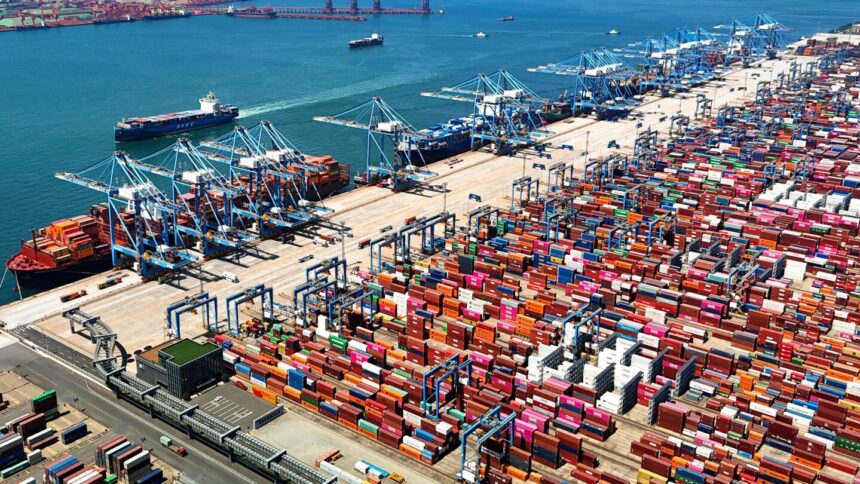China has firmly reiterated its position amidst heightened tensions with the United States, following President Donald Trump’s provocative threat to impose a 100% tariff on imports from the country. The Chinese Commerce Ministry issued a statement emphasizing the importance of negotiation over confrontation, asserting, “We do not want a tariff war but we are not afraid of one.” This declaration arose just days after Trump indicated that increased tariffs would take effect by November 1, targeting China in response to its recently implemented restrictions on the export of rare earth materials.
The escalating rhetoric from both nations raises serious concerns about the potential interruption of a planned meeting between Trump and Chinese President Xi Jinping, which could jeopardize the fragile truce established earlier in the ongoing trade tension. Both countries previously imposed tariffs exceeding 100% earlier this year, and the current developments risk reigniting aggressive trade measures that could have widespread ramifications.
The Chinese government’s response clearly denounces the frequent resort to high tariffs as an ineffective approach to fostering constructive relations. The statement insisted on resolving trade differences through dialogue, cautioning that the U.S. administration’s insistence on imposing tariffs would compel China to take decisive actions to protect its interests.
Amidst accusations exchanged by both sides regarding breaches of the trade agreement’s spirit, Trump characterized China as “becoming very hostile,” alleging that it was leveraging control over crucial rare earth materials as a strategy against the global market. Beijing’s new regulations now mandate that foreign firms obtain special permission to export products containing even minimal amounts of rare earth elements sourced from China. These minerals are vital for a range of technologies, from military equipment to consumer electronics.
China currently dominates the rare earths market, accounting for nearly 70% of global mining and controlling about 90% of processing operations. Access to these materials has emerged as a critical sticking point in negotiations between the two superpowers. The Chinese statement offered assurances that necessary export licenses would be available for legitimate civilian applications, while acknowledging the significant military importance of these resources.
In recent weeks, the U.S. has tightened its grip on trade relations as well, expanding export controls affecting a number of Chinese companies and moving forward with new port fees for Chinese vessels, set to take effect imminently. In a reciprocal gesture, China announced its intent to impose corresponding port fees on American ships, further complicating the already strained trade dynamics.
This tit-for-tat approach to trade restrictions highlights the deepening rift between the two nations, underscoring the need for diplomatic efforts to resolve ongoing disputes before they spiral into a more extensive conflict.








